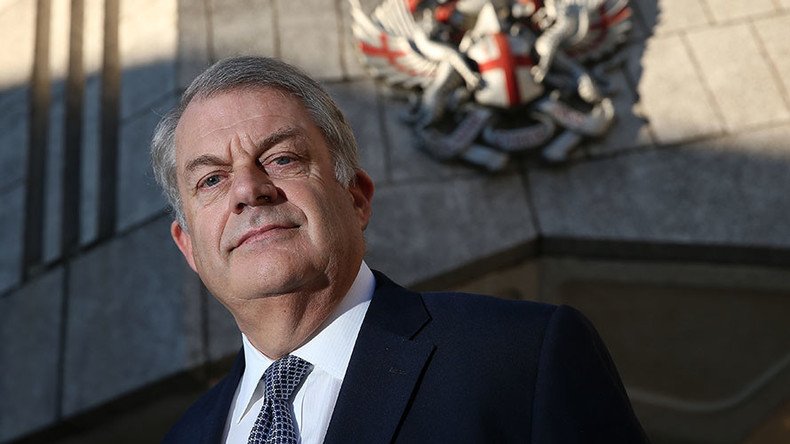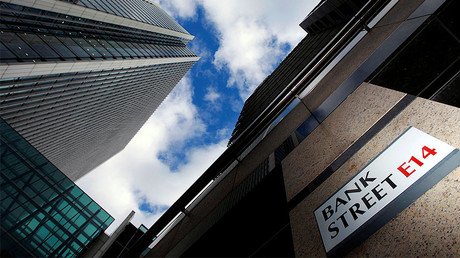Britain’s post-Brexit financial prospects have improved – City of London policy chief

The UK will still be a global financial hub post-Brexit, with its financial prospects actually improving since Article 50 was triggered, the policy chief of City of London Corporation claims.
Mark Boleat said the country’s financial outlook looks even more positive after Prime Minister Theresa May invoked Article 50 of the Lisbon Treaty last month, beginning the official two-year process for Britain to exit the EU.
Boleat dismissed gloomy forecasts that Brexit would lead to hundreds of thousands of financial jobs being lost to the EU, and claimed instead that only a few would be affected.
In an interview with AFP, Boleat said that even though a few posts could be relocated as Brexit runs its course, London would “never close down.”
“On the whole, I think things are looking rather better,” Boleat told AFP newswire.
“We would hope that the negotiations go quickly and go well.”
The financial sector, along with the City of London, largely
backed the Remain campaign in the run-up to the EU referendum last July, arguing that Brexit would cause a huge swathe of job losses in the City.
Some of the largest banks, including Goldman Sachs and HSBC, say they will be moving some jobs out of London to avoid the disruption caused by Brexit.
Boleat, however, hit back at claims that the UK cannot remain the financial hub for EU trade, saying: “The clearing is done in London because that is where the expertise is.
“That’s where the market is. Brexit will not change that,” he said.
“Euro clearing is already a political football – but we hope that economic reality will determine the outcome, not a wish to have a trophy function move to another place.”
Boleat added that banks have always known that the UK risks losing access to the single market, and that they have put plans in place accordingly.
“Banks have had contingency plans since before the Brexit referendum in some cases,” he said.
“They have known there is a possibility that Britain will not be in the single market – that has now been confirmed.”
He said banks would likely have to “restructure” their operations – whether that means halting some businesses or starting new ones elsewhere in the bloc – adding that they were “getting on and doing that.”
The City of London’s policy chief did, however, stress the importance of the UK being speedy in reaching an agreement on the terms of Britain’s withdrawal from the EU, as well as rights for EU nationals, in order to avoid any further hassle for businesses and consumers both inside and outside of the UK.
The iconic Lloyds of London recently announced it would open a new operation in Brussels.
But Boleat claimed the announcement is not representative of a wider shift of activities to the EU. “It’s Lloyd’s of London.
"The vast bulk of its business will stay in London. It will not be Lloyd’s of Brussels,” he remarked.














